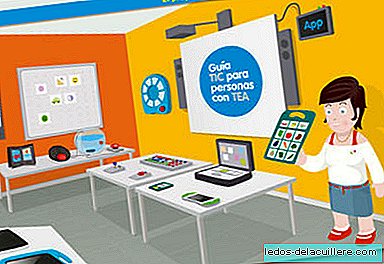
'There is a directly proportional relationship between the consumption of sugary sodas and the risk of developing type 2 diabetes'. It is the conclusion of a study coordinated by Dr. Dora Romanguera that has analyzed the consumption of juices, sugary sodas and sweetened soft drinks artificially in 350,000 people from eight European countries.
The research has been carried out at European level, and the Spanish CÏBERobn has participated. The finding has been published in Diabetology and is framed in a subgroup of the European Prospective Study on Diet, Cancer and Nutrition. The results corroborated that for every 336ml of sugary soda daily, approximately one can, increases the risk of type 2 diabetes up to 22%. This percentage drops slightly, up to 18%, if the rest of the calories ingested and the BMI are taken into account.
If someone considered that a glass or a can a day was little, he was wrong, the consumption has to be practically exceptional, highlights the researcher of the CIBERobn
Other variables related to participants have been considered, such as alcohol consumption, educational level, level of physical activity and whether they were smokers or not.
I would like to point out that sugary drinks they are already part of the celebrations in which people of any age participate (including children), and that to my regret are present in children's birthdays. On the other hand, their habitual consumption is also an accepted fact in many homes that have reserves of these products in pantries and refrigerators. At home we usually opt for juices when we celebrate something, and of course water is our favorite drink every day, however I know cases of families who install a mini fridge full of soft drinks in their children's playroom.
Although this is the first major European study, other similar studies had already been carried out in the United States in which a 25% increase in the risk of type 2 diabetes was detected for each sugary drink ingested daily.
"The increased risk of type 2 diabetes among consumers of sugary drinks in Europe is similar to that found in studies conducted in North America," says Dr. Romaguera. 'Since people consume more and more sugary drinks in Europe, we need to send clear messages about their harmful effects'
According to the eight countries in which the study was conducted, Spain, France, United Kingdom, Italy, Germany, Sweden, Denmark and the Netherlands, the consumption of sugary drinks is higher in those in the north than in those in the south.
As for fruit juice or nectar, there were no cases of a higher incidence of diabetes among its consumersHowever, it should be noted that no distinction has been made between natural and processed, so a more specific study would be necessary in which the consumption of both types was differentiated and more exhaustive results obtained. Artificially sweetened beverages are also not the solution, since their users are more likely to suffer from chronic diseases or have a family history of diabetes.
I think we have the best prevention in our actions as responsible adults for children, greater awareness on our part will influence their health. Not long ago, the Harvard University School of Public Health published a report that ensured that all kinds of sugary drinks contribute to the increase in population weight, which entails the development of different diseases (including diabetes).












